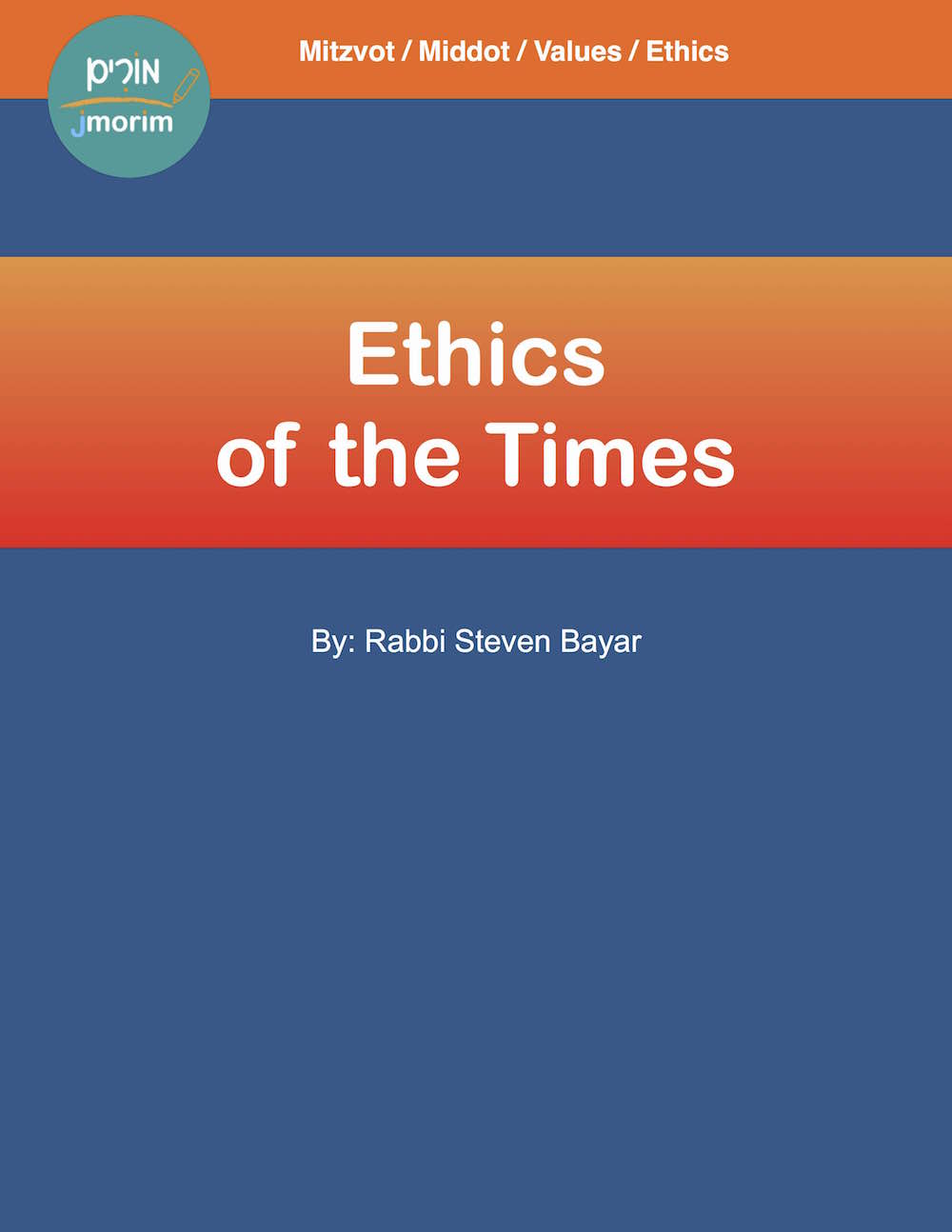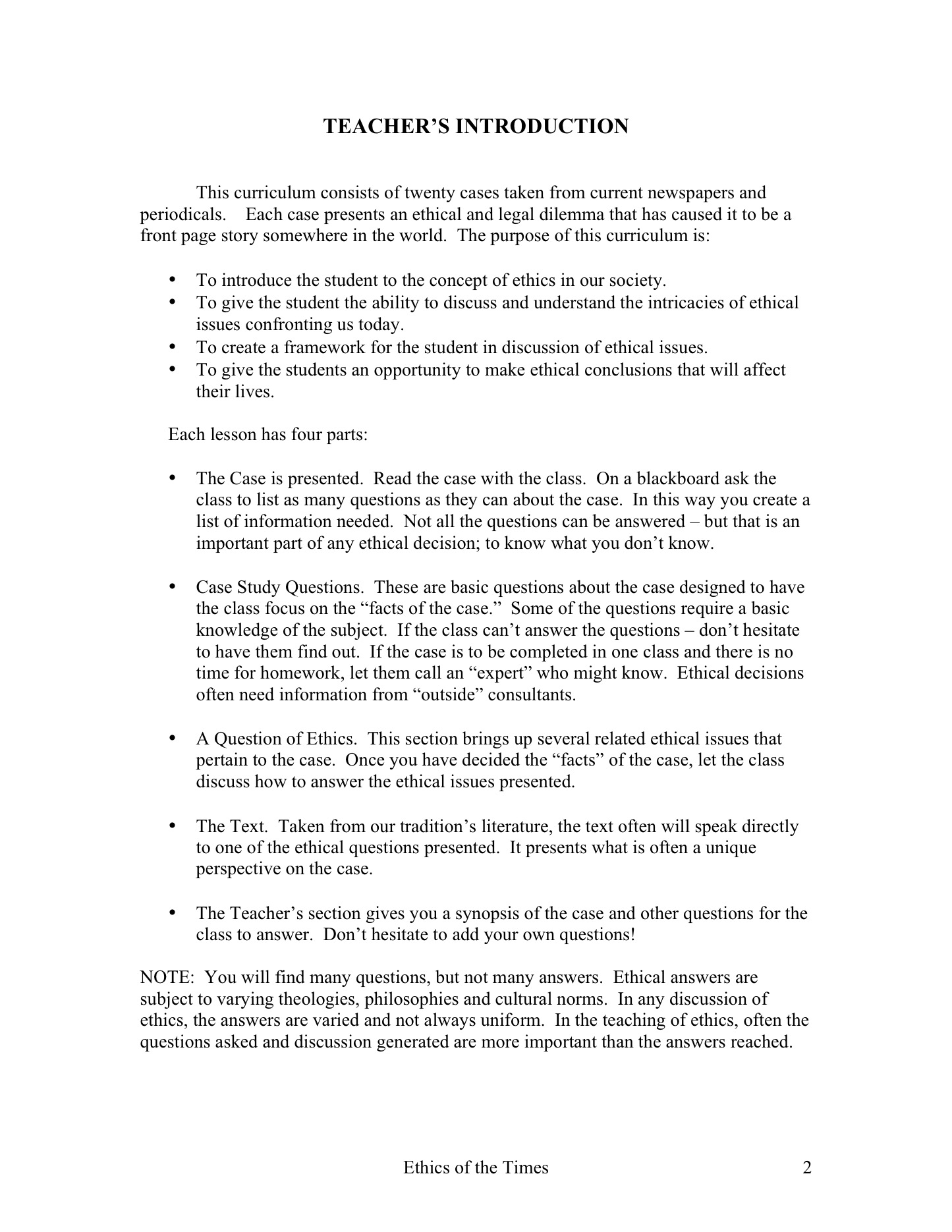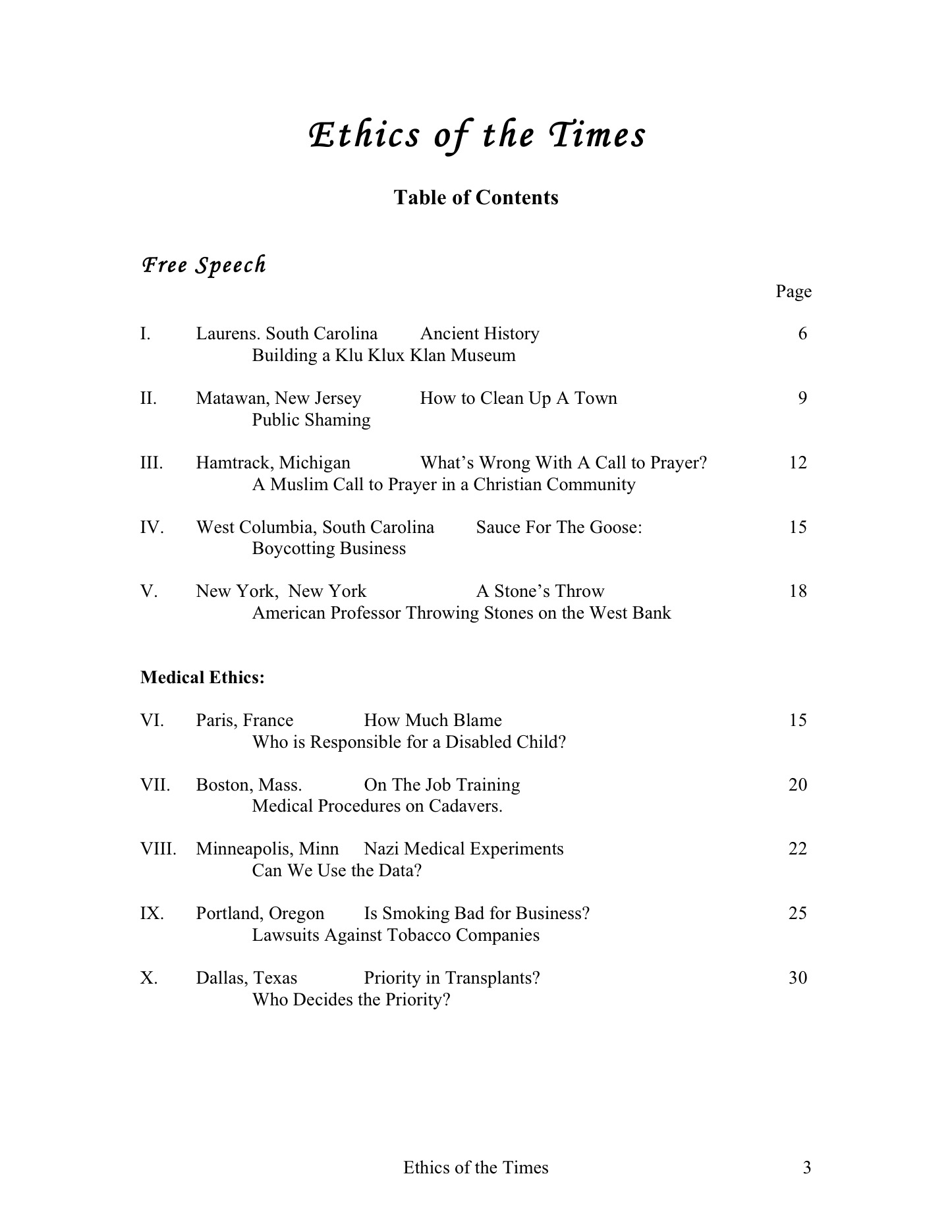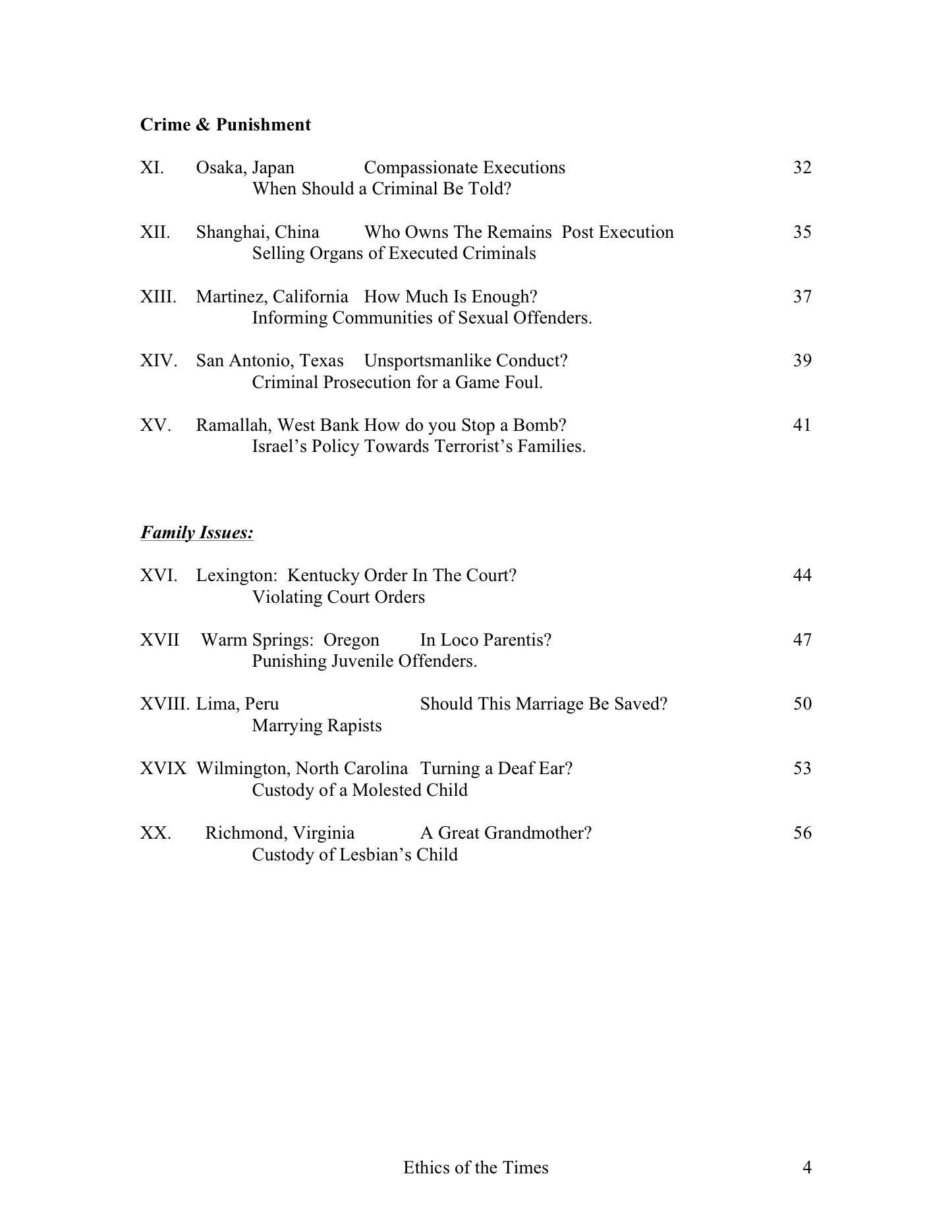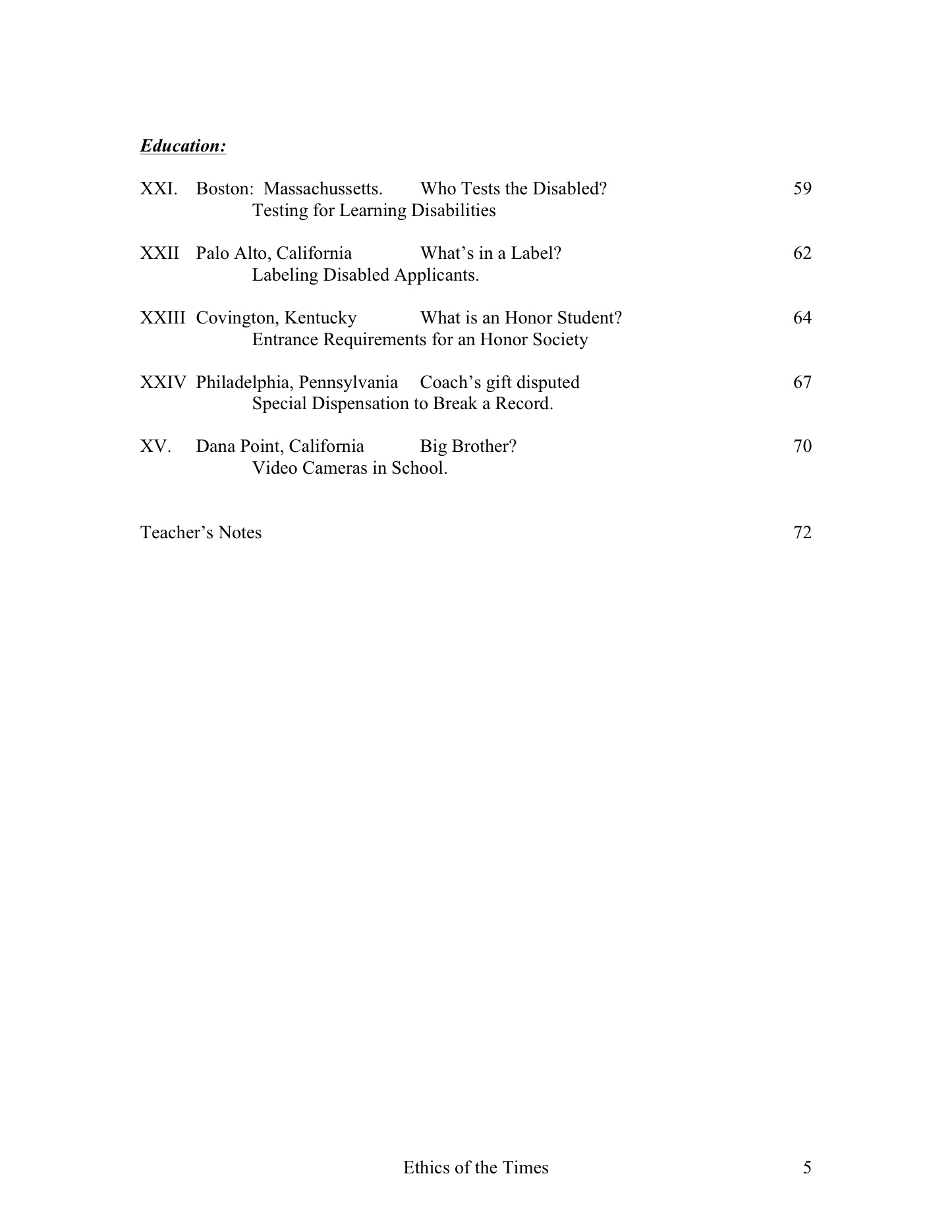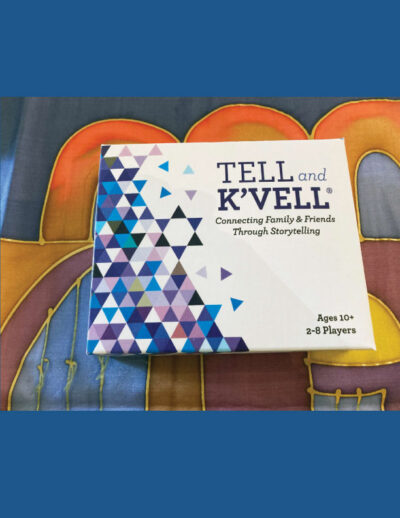Ethics of the Times
$25.00
This curriculum consists of twenty cases taken from current newspapers and periodicals. Each case presents an ethical and legal dilemma that has caused it to be a front page story somewhere in the world. The purpose of this curriculum is:
- To introduce the student to the concept of ethics in our society.
- To give the student the ability to discuss and understand the intricacies of ethical issues confronting us today.
- To create a framework for the student in discussion of ethical issues.
- To give the students an opportunity to make ethical conclusions that will affect their lives.
Each lesson has four parts:
- The Case is presented. Read the case with the class. On a blackboard ask the class to list as many questions as they can about the case. In this way you create a list of information needed. Not all the questions can be answered – but that is an important part of any ethical decision; to know what you don’t know.
- Case Study Questions. These are basic questions about the case designed to have the class focus on the “facts of the case.” Some of the questions require a basic knowledge of the subject. If the class can’t answer the questions – don’t hesitate to have them find out. If the case is to be completed in one class and there is no time for homework, let them call an “expert” who might know. Ethical decisions often need information from “outside” consultants.
- A Question of Ethics. This section brings up several related ethical issues that pertain to the case. Once you have decided the “facts” of the case, let the class discuss how to answer the ethical issues presented.
- The Text. Taken from our tradition’s literature, the text often will speak directly to one of the ethical questions presented. It presents what is often a unique perspective on the case.
- The Teacher’s section gives you a synopsis of the case and other questions for the class to answer. Don’t hesitate to add your own questions!
NOTE: You will find many questions, but not many answers. Ethical answers are subject to varying theologies, philosophies and cultural norms. In any discussion of ethics, the answers are varied and not always uniform. In the teaching of ethics, often the questions asked and discussion generated are more important than the answers reached.
Category: Mitzvot/Middot/Values/Ethics
Tags: Age Group: Adult, Age Group: High School, Author: Rabbi Steven Bayar
Note: All educational resources presented as a digital download in PDF and/or PowerPoint format, with the link expiring either after first download, or a 24 hour period from when transaction is completed. Unless otherwise specified.
Note: All educational resources presented as a digital download in PDF and/or PowerPoint format, with the link expiring either after first download, or a 24 hour period from when transaction is completed. Unless otherwise specified.

